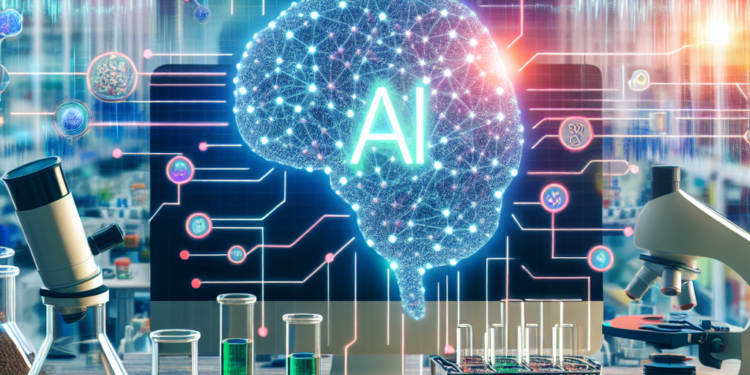Over the past few years, artificial intelligence (AI) has made significant advancements in various industries, including the pharmaceutical industry. AI has the potential to revolutionize drug discovery, streamline clinical trials, improve patient outcomes, and optimize operational efficiency in pharmaceutical companies. This article will discuss the success of AI in the pharmaceutical industry and how it is transforming the way drugs are developed and brought to market.
One of the most significant contributions of AI in the pharmaceutical industry is in drug discovery. Developing a new drug is a complex and time-consuming process that can take years and cost billions of dollars. AI algorithms have the ability to analyze vast amounts of data to identify potential drug candidates much faster than traditional methods. By using machine learning algorithms, AI can scan massive databases of drug compounds, genetic information, and clinical trial data to discover new drug targets and predict the effectiveness of potential drugs.
AI has also been instrumental in predicting drug interactions and side effects, which can help pharmaceutical companies avoid costly mistakes during the drug development process. By analyzing historical data on drug reactions and using predictive analytics, AI can identify potential risks and provide insights into how a drug may interact with other medications or conditions. This information is invaluable in ensuring drug safety and efficacy before a drug is brought to market.
Furthermore, AI has been used to optimize clinical trials, which are essential for testing the safety and effectiveness of new drugs. AI algorithms can analyze patient data and identify suitable candidates for clinical trials, predict patient outcomes, and optimize trial protocols to improve efficiency and reduce costs. By leveraging AI technology, pharmaceutical companies can accelerate the drug development process, improve trial success rates, and ultimately bring new treatments to market faster.
In addition to drug discovery and clinical trials, AI is also transforming personalized medicine in the pharmaceutical industry. Personalized medicine involves tailoring treatments to individual patients based on their genetic makeup, lifestyle factors, and other variables. AI algorithms can analyze patient data to identify patterns and correlations that can help predict how a patient will respond to a particular drug or treatment. By harnessing the power of AI, pharmaceutical companies can develop more targeted therapies that are tailored to the unique needs of each patient.
Another area where AI has been successful in the pharmaceutical industry is in operational efficiency. AI-powered systems can automate repetitive tasks, streamline processes, and improve decision-making in pharmaceutical companies. For example, AI algorithms can optimize supply chain management, forecast demand for drugs, and improve inventory control. By leveraging AI technology, pharmaceutical companies can reduce costs, increase productivity, and make more informed decisions that drive business growth.
Overall, the success of AI in the pharmaceutical industry is evident in the numerous benefits it offers, from speeding up drug discovery to improving patient outcomes and operational efficiency. As AI technology continues to evolve and become more advanced, the possibilities for innovation in the pharmaceutical industry are endless. Pharmaceutical companies that embrace AI and incorporate it into their operations will undoubtedly gain a competitive edge and lead the way in developing groundbreaking treatments that improve the lives of patients worldwide.
In conclusion, AI has been a game-changer in the pharmaceutical industry, transforming drug discovery, clinical trials, personalized medicine, and operational efficiency. The success of AI in the pharmaceutical industry is evident in the significant advancements that have been made in recent years. With continued investment in AI technology and collaboration between pharmaceutical companies and AI developers, the future of drug development looks brighter than ever. AI is truly revolutionizing the way drugs are developed and brought to market, and its impact on the pharmaceutical industry will continue to grow in the years to come.













